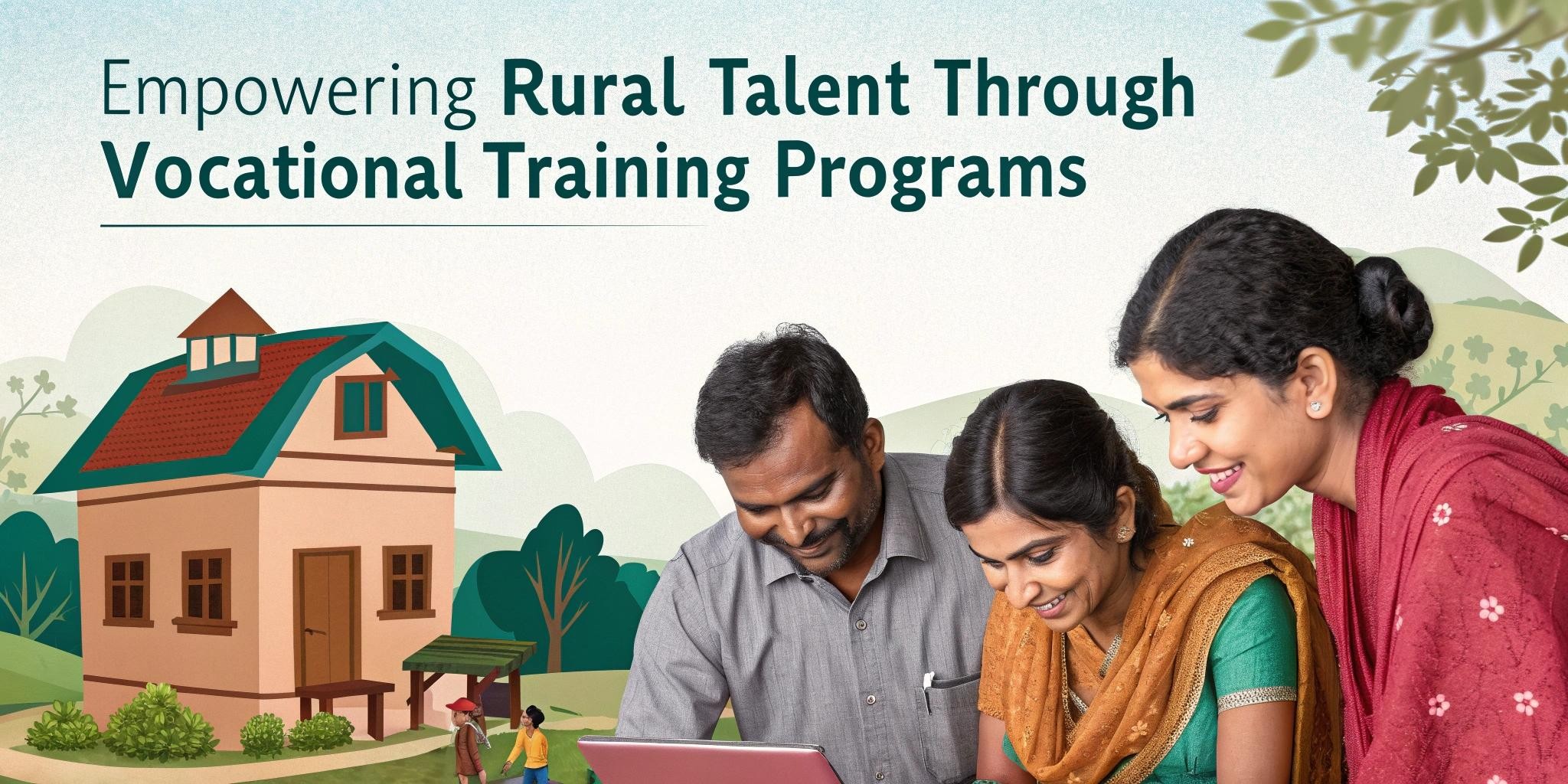
Empowering Rural Talent Through Vocational Training Programs
Economic growth is often measured by urban advancements, but rural communities hold immense untapped expertise. The challenge lies in bridging the skill gap between traditional livelihoods and emerging job opportunities. Rural vocational training in India has emerged as a pivotal solution, ensuring workforce readiness, sustainable employment, and regional economic development. Let’s explore the trends, solutions, and opportunities shaping this transformative journey.
The Shifting Landscape of Rural Workforce Development
Traditional rural employment in agriculture and handicrafts is giving way to diversified career paths. Industries such as logistics, healthcare, and digital services are expanding their reach beyond cities, creating demand for skilled workers. With government initiatives and industry collaborations, vocational training for rural areas is evolving from conventional skill-building to more technology-driven, industry-specific modules.
The Role of Digitalization in Skill Development
Technology is redefining learning access for rural populations. Mobile-based learning, e-learning platforms, and hybrid training models are breaking geographical barriers, enabling individuals to gain hands-on skills without relocating. Digital literacy is no longer optional but a critical enabler for rural talent to integrate into the modern workforce. AI-driven adaptive learning and vernacular content are further enhancing engagement and retention.
Industry Collaboration: A Catalyst for Employability
Corporations are recognizing the strategic advantage of investing in rural vocational training in India. Public-private partnerships (PPPs) are fostering demand-driven skilling, ensuring that trained individuals meet industry needs. Companies are not just funding training but also offering apprenticeships and on-the-job training, leading to direct employment opportunities.
Overcoming Barriers to Rural Vocational Training
Despite progress, challenges remain. Limited infrastructure, socio-economic constraints, and lack of awareness often hinder participation. Innovative models such as community-led training centers, micro-entrepreneurship programs, and peer mentoring networks are making vocational education more accessible. Financial incentives and recognition of prior learning (RPL) frameworks further encourage enrollment and completion rates.
Women-Centric Vocational Training: A Game Changer
Women in rural areas often face higher barriers to employment. Vocational training for rural areas is increasingly focusing on gender-inclusive skilling, offering programs in healthcare, digital services, and financial inclusion. Self-employment and microfinance-driven initiatives are enabling women to contribute to household income, thereby driving socio-economic change at the grassroots level.
The Future of Rural Vocational Training in India
With automation and Industry 4.0 reshaping job markets, vocational training must adapt to emerging skill demands. Courses in renewable energy, AI-powered agritech, and rural e-commerce are gaining traction. The shift from qualification-based employment to competency-based hiring is opening doors for skilled rural workers to access mainstream job markets.
Looking Ahead: What’s the Next Big Step?
As rural vocational training in India continues to evolve, the question remains—how can stakeholders create sustainable, long-term skilling ecosystems that go beyond training to ensure dignified livelihoods? The answer lies in collaborative action, innovative delivery models, and a commitment to bridging the rural-urban employment divide.
FAQs
1.What skills does TeamLease EdTech Foundation emphasize for a career in
the BFSI sector?
We focus on essential skills like digital
banking, financial analysis, data security, risk management, and
customer service. Additionally, we integrate critical soft
skills training—such as ethical decision-making and
communication—to prepare candidates for BFSI’s customer-centric
and compliance-driven environment.
2.How can young professionals benefit from TeamLease EdTech Foundation’s
BFSI training programs?
Through targeted training,
mentoring, and hands-on learning experiences, our curated BFSI
programs ensure participants gain both technical and practical
skills. Our industry-aligned approach equips young professionals
to confidently enter BFSI roles with relevant, job-ready
capabilities.
3.Why is ethical training a priority in TeamLease EdTech Foundation’s
programs for BFSI?
In BFSI, handling sensitive information
and ensuring compliance is crucial. Our programs emphasize
ethical practices and integrity to foster trust and
responsibility in young professionals, helping them build
long-lasting careers rooted in reliability and accountability.
4. How does TeamLease EdTech Foundation leverage technology in BFSI
training?
We incorporate digital tools and simulated
learning environments into its BFSI training. This tech-driven
approach allows learners to gain practical experience with tools
used in banking and finance, making the transition to real-world
roles smoother and more effective.
5. How does TeamLease EdTech Foundation reach youth in underserved
communities for BFSI skilling?
By partnering with local
organizations and adopting hybrid training models, we have
expanded our reach into rural and semi-urban areas. This
inclusive approach ensures that youth from diverse backgrounds
have equitable access to BFSI skilling opportunities,
contributing to a more inclusive workforce across the sector.




